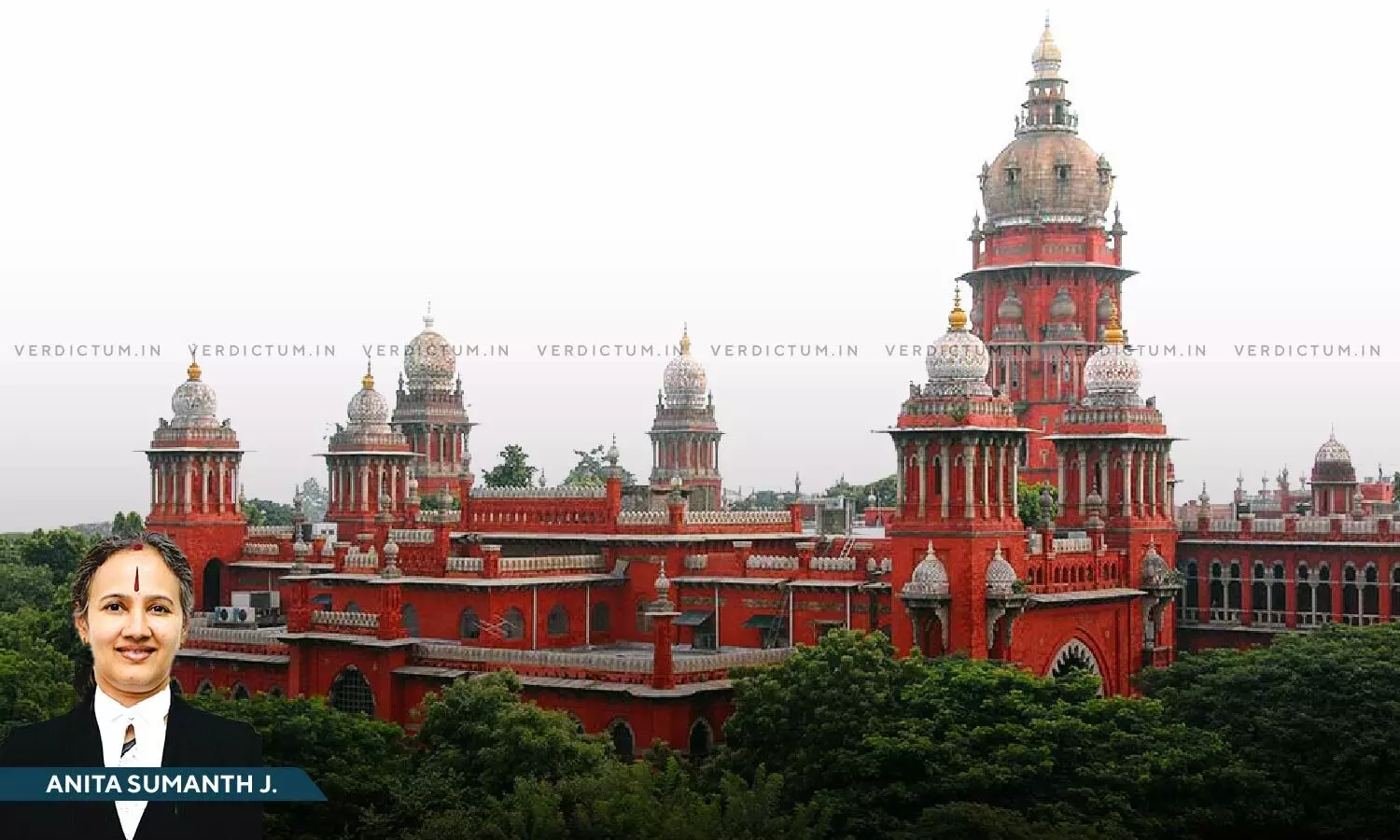
Ancient Varna System Not Responsible For Present Day Caste System, Varna Was Based On Avocation And Not Birth: Madras High Court
 |
|While refusing to issue a writ of quo warranto against DMK MP A. Raja, Tamil Nadu State Ministers Udhayanidhi Stalin and P.K. Sekar Babu for hate speech against Sanatana Dharma, the Madras High Court rejected the argument of the said respondents that the reference to Sanatana Dharma is a reference to the Caste System, which is based on the Varna System found in ancient Hindu texts.
The High Court held that the origins of the caste system are less than a century old and that the Varna System cannot be held responsible for the present-day caste system. The Court found that the varna system does not contemplate division on the basis of birth, but based on avocation.
A Bench of Justice Anita Sumanth held, "This ferocity among persons belonging to different castes is also, in part, on account of the benefits made available to them. Can one lay the blame for these torturous circumstances entirely on the ancient Varna system? The answer is emphatically in the negative. .......The varna system does not contemplate division on the basis of birth, but based on avocation".
The Court held that the Varna System was designed to work towards the smooth functioning of society centuries ago, where the chief avocations were identified based on the then needs of society.
The Court further held, “While it is correct to state that the Rig Veda provides for a division of castes, such classification is based on avocation and not on the birth of a person. A pointed query was put to the individual respondents as to what material they had based their conclusions on, that Sanatana Dharma meant only Varna Dharma. Apart from the publication of the Central Banaras University, a book entitled The Law code of Manu, the books referred to by Mr. Jothi, there are no authoritative texts, commentaries or any material to indicate that the individual respondents had undertaken any study worth its name to come to that conclusion. The restrictive meaning attributed to the phrase Sanatana Dharma is clearly erroneous as Sanatana Dharma connotes that eternal, perpetual and universal code of conduct that is uplifting, noble and virtuous”.
The Bench had also observed, “...If the leaders in a State wish to lead an egalitarian land with equal sharing of resources among all the people, they must set an example by exhibiting fairness in approach, moderation in speech and a sincere desire to understand the differences between their people.…Divisions based on caste are deeply entrenched in State of Tamil Nadu and the State must undoubtedly do all in its power to eliminate such evils. Instead, the individuals are seen to be fanning casteist passions which is not in the interests of the State or its people”.
In the matter the petitioner had argued that Raja was admittedly part of the Scheduled Caste community, therefore, his statements equating Sanatana Dharma to diseases like HIV AIDS and leprosy were in total violation of Constitutional principles and constitute rank fraud played upon the Constitution. It was thus submitted that it is self-destructive for one who is expected to profess Hinduism to seek eradication of that very faith. “...clearly he is not a practitioner of that faith and loses his eligibility to contest the election in the Reserved Constituency”, was argued by the petitioner.
The respondents, to the contrary, referred to a publication of the year 1902 by the Board of Trustees of the Central Hindu College, Banaras titled Sanatana Dharma – An Elementary Textbook of Hindu Religion and Ethics ’ stating the basis of Sanatana Dharma are the Vedas and other compendiums, the chief of which is what has been referred to in that publication, as Aryan Law by Manu. Chapter VII of the publication was referred to where four castes and specific reference is made to a passage from the Rig Veda where the avocations to be followed by the four castes are set out.,“The Brahmana was His mouth: the Rajanya was made His two arms; His two thighs the Vaishya; the Shudra was born from His two feet.”
It was referred to show that it is this system of inequality that has been perpetrated through centuries leading to the oppression of certain classes of societies, at the instance of the upper castes.
The Bench though noted that the offending statements spewed hate against the Hindus and constituted misinformation, was of the opinion that the conclusions could not be stretched so as to justify a writ of quo warranto as the Bench would then be reading into the Constitution and the provisions of the Representation of Peoples Act. Therefore, the Bench observed:
-that the quality of the people’s representatives is in the hands of the people alone, and it is the vox populi that will ultimately prevail.
-a disqualification fastened upon a candidate can be under the list of disqualifications enumerated under Sections 8 to 11A only ‘and on no other ground’.
Furthermore, while noting Section 153-A RP Act, the bench further noted, “The allegations of the petitioners as against the individual respondents is exactly on point. While FIRs are stated to be pending in various States in regard to the offending statements, admittedly, there has been no conviction as on date. Thus, the relief of quo warranto as sought for by the petitioners is premature as no cause of action arises at this juncture of time for such issuance”.
The High Court also held that the statements of the respondents "perverse, divisive and contrary to Constitutional principles and ideals and tantamount to gross dis or misinformation". (read report)
Cause Title: Kishore Kumar v. P.K. Sekar Babu (WP.Nos.29203, 29204 & 29205 of 2023 & WMP.Nos.29853, 31023 31025 & 31026 of 2023)